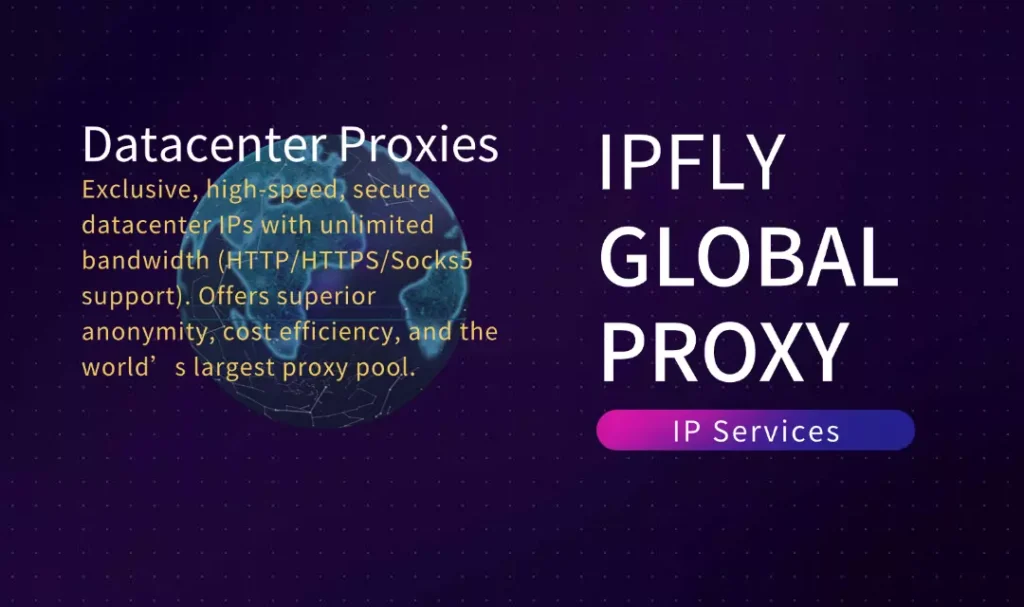In today’s data-driven world, the ability to process vast amounts of information quickly and efficiently is a critical competitive advantage. Parallel concurrent processing (PCP) has emerged as a powerful computing paradigm that enables businesses to handle complex tasks with unprecedented speed and reliability. However, as applications become more distributed and interact with the web more extensively, new challenges arise, particularly in managing network identity and access. This is where a robust proxy service like IPFLY becomes an indispensable partner, providing the anonymity and reliability needed to unlock the full potential of parallel concurrent processing.

What is Parallel Concurrent Processing?
Parallel concurrent processing is a method of executing multiple processes or tasks simultaneously across a distributed network of computers or processors. Unlike traditional sequential processing, which handles one task at a time, PCP breaks down large problems into smaller, independent sub-tasks that can be worked on concurrently. This approach offers several key benefits:
High Performance:
By distributing the workload across multiple nodes, PCP significantly reduces the time required to complete complex computations, leading to faster results and improved application performance.
Fault Tolerance:
In a distributed system, if one node fails, the tasks can be automatically reassigned to other available nodes, ensuring that the application continues to run without interruption.
Scalability:
PCP architectures are highly scalable, allowing businesses to add more nodes to the network as their processing needs grow, without having to redesign the entire system.
The Role of Proxies in Distributed Systems
As parallel concurrent processing systems become more sophisticated, they often need to interact with a wide range of web-based resources. This is particularly true for applications involved in web scraping, data mining, and market research. In these scenarios, making a large number of requests from a single IP address can lead to blocking and other access restrictions. This is where proxy services play a crucial role.
A proxy server acts as an intermediary between the application and the internet, masking the true IP address of the requesting machine. By routing requests through a network of different proxy servers, distributed systems can avoid detection and access the information they need without being blocked.
IPFLY: A Strategic Partner for Parallel Concurrent Processing
IPFLY is a leading proxy service that offers a massive network of over 90 million residential and datacenter IPs in 195 countries. This makes it an ideal solution for businesses that rely on parallel concurrent processing for their data-intensive applications. Here’s how IPFLY enhances the capabilities of PCP:
Vast IP Pool: With millions of IPs to choose from, IPFLY ensures that a distributed system can make a large volume of requests without raising red flags.
Rotating IPs: IPFLY’s rotating proxy feature automatically changes the IP address for each request, making it virtually impossible for websites to track and block the application.
Geo-Targeting: For applications that need to access content from specific geographic locations, IPFLY offers precise geo-targeting, allowing users to select IPs from a particular country or city.
High Reliability: IPFLY’s network is built for performance and reliability, ensuring that the proxy servers are always available and responsive, which is critical for maintaining the efficiency of a parallel concurrent processing system.
Use Cases: PCP and IPFLY in Action
The combination of parallel concurrent processing and IPFLY can be a game-changer for a variety of business applications:
Large-Scale Web Scraping:
A company that needs to collect product information from thousands of e-commerce websites can use a PCP architecture to distribute the scraping tasks across multiple nodes. By integrating IPFLY, they can ensure that their scrapers are not blocked, allowing them to gather the data they need quickly and efficiently.
Ad Verification:
Advertising agencies can use PCP to simulate user traffic from different geographic locations to verify that their clients’ ads are being displayed correctly. IPFLY provides the geo-targeted IPs needed to make this possible.
Market Research:
A market research firm can use a distributed system to gather data on consumer sentiment from social media and other online sources. IPFLY’s residential proxies provide the high level of anonymity needed to conduct this research without being detected.

Parallel concurrent processing is a powerful technology that can help businesses unlock new levels of performance and scalability. However, to truly harness its potential, it is essential to have a robust and reliable proxy solution in place. With its vast network of high-quality proxies and advanced features, IPFLY is the perfect partner for any organization that is serious about leveraging the power of parallel concurrent processing. By combining these two technologies, businesses can build highly efficient, scalable, and resilient applications that can handle even the most demanding data processing tasks with ease.

Start now! Visit IPFLY.net to experience excellent proxy services and join the IPFLY Telegram community for the latest strategies—master cutting-edge tips and exclusive resources, and let proxies efficiently empower all your needs!


